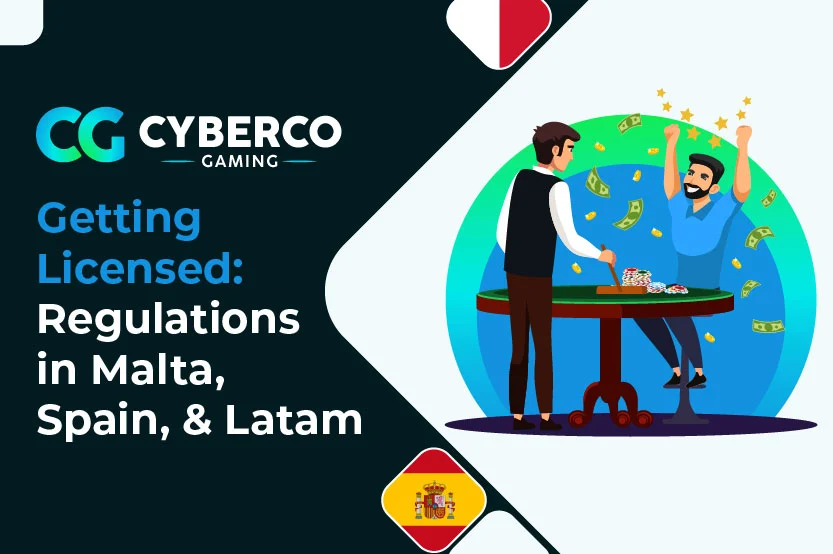
24 Jul
The global online gaming market is currently experiencing explosive growth, and that growth is only expected to increase. Yet getting into these markets means dealing with a lot of paperwork and obtaining the necessary licenses. This is particularly the case in top-tier jurisdictions such as Malta and Spain in Europe as well as early stage markets throughout Latin America (LatAm).
Understanding the paths to licensure, documentation requirements, and fee schedules and differences across jurisdictions is important for operators who want to be trusted, compliant businesses.
In this article, we will provide a detailed analysis of the process of becoming licensed in Malta, Spain, and the main countries of LatAm. We will also explain the differences between them in terms of regulation, costs, and what it means for you as an operator.
Why Licensing Matters in iGaming?
Licensing is not just a legal formality; it forms the foundation of trust between operators, regulators, and players. A gambling license demonstrates compliance with standards covering fairness, security, player protection, and anti-money laundering (AML). It also enables operators to access local payment methods, advertising channels, and partnerships.
Failing to obtain proper licensing can result in legal penalties, blocking by internet service providers, reputational damage, and exclusion from key markets. Therefore, selecting the right jurisdiction for licensing is a strategic business decision that balances regulatory requirements, market access, and operational costs.
Licensing in Malta: Europe’s iGaming Hub
Malta has always been the leading European country in terms of licensing online gambling. The Malta Gaming Authority (MGA) was founded in 2001 and regulates all gaming activities on the island. Their regulatory structure is however said to be one of the most solid and transparent, open to thousands of operators worldwide, ranging from small start-ups to large industry players.
Licensing Pathways:
Now Malta provide a few types of licenses but the main ones for online operators are:
Remote Gaming License (Class 1, 2, and 3):
- Class 1 - For games of chance with risk and reward (including online casinos and poker).
- Class 2 – For skill games and betting exchanges.
- Class 3 – For those wishing to provide other types of support services, such as betting intermediaries or software providers.
Class 1 is usually demanded by applicants for complete casino action. The procedure calls for substantive due diligence, a commercial plan, financial soundness evidence, and conformity with technical requirements.
Documentation and Fees:
Applicants must provide the following credentials as part of comprehensive documentation:
- Corporate Documents (company registration, shareholder details.)
- Financial information (audited accounts, funding sources)
- Regulation and compliance (AML, responsible gaming)
- Technical details (game fairness, server locations)
The application fee is around €2,330 and the annual licence fee depends on gross gaming revenue (GGR). Malta imposes one of the lowest taxes in Europe, a 5% tax on gross gaming revenue (GGR).
Why Choose Malta?
- Full access to the whole European Economic Area (EEA) market
- Proven credibility and player loyalty
- Strong regulations and some flexibility in operations
- Well integrated supporting services (legal and financial, technical)
Licensing in Spain: Regulated National Market
Online gambling is regulated in Spain by the Dirección General de Ordenación del Juego (DGOJ), which operates within the Ministry of Consumer Affairs. The Spanish market is among the continent’s most significant and fastest growing, and the rules are strict but very clear.
Licensing Pathways:
Spain is divided into different license categories:
- Category A: Internet casino and poker permits.
- Class B: Sports betting licences.
- Class C: Skill and other gambling forms.Operators are required to obtain a national licence proving their financial integrity, technical competence and the adequacy and identity of the company’s shareholders.
Documentation and Fees
The application involves:
- Proof of legal incorporation
- Tax compliance certificates
- Detailed descriptions of types of software and games
- Anti-fraud and responsible gambling polices.
The initial application fees range from €40,000 to €70,000, depending on the category, plus monthly contributions, based on turnover. The tax level on GGR is around 20%, much higher than that of Malta.
Market Characteristics
- Operators must hold the required Spanish licence to filter Spanish players
- Particularly concerned about responsible gambling and protecting players.
- There is no gray market, only licensees have access to the market.
- Operators enjoy a loyal, high value player base
Licensing in Latin America: Prospects and Challenges.
Latin America is quickly emerging as a growth market for iGaming as increasing online popularity, a favorable demographic profile, and changing regulations are increasing demand for online gambling. But compliance is inconsistent, as each country is taking its own approach.
Colombia — The Pioneers (Coljuegos)
Colombia was the pioneer LatAm nation to implement a regulated iGaming setup, which it did in 2016 under the supervision of the Coljuegos gaming regulatory agency (Comisión de Regulación de Juegos de Suerte y Azar – Coljuegos). It also has an open and user-friendly licensing procedure.
Licensing Pathway:
Operators must seek licenses for online casinos, sports betting and poker. Licenses are valid for four years, with renewals available.
Documentation & Fees:
The application needs numbers on the company, its finances, and its compliance. Fees ranges from an application fee (~$55,000 USD) to an annual fee (approximately 20% tax on gross gaming revenue).
Market Benefits:
This early regulation has been helpful to many international operators. The market is gaining momentum with active player protections.
Brazil and Peru—New Frontiers
Brazil and Peru are two of LatAm’s largest markets and have both recently regulated and legalized online gambling.
Brazil passed legislation in 2018 permitting sports betting, and formal licensing is expected to begin shortly.
In Peru, online gambling is regulated by the Peruvian Gaming Control Board, where companies can obtain a license and have to follow regulations designed to ensure fair play and consumer protection.
Other LatAm Markets
Nations like Mexico, Argentina, and Chile are also moving toward clearer frameworks. Operators will have to stay ahead of this evolving local rules landscape.
Comparing Malta, Spain, and LatAm Licensing Frameworks
| Feature | Malta (MGA) | Spain (DGOJ) | Colombia (Coljuegos) | Brazil/Peru (Emerging) |
| Licensing Types | Class 1, 2, 3 | Type A, B, C | Online casino, sports betting | Sports betting (Brazil), broad (Peru) |
| Licensing Cost | €2,330+ application fee | €40,000-€70,000+ fees | ~$55,000 USD application | TBD (emerging markets) |
| Tax Rate on Revenue | 5% GGR | ~20% GGR | ~20% GGR | TBD |
| License Duration | 5 years | 5 years | 4 years | TBD |
| Market Access | EEA countries | Spain only | Colombia only | Emerging with expanding access |
| Player Protection | Strong | Very Strong | Strong | Developing |
How Cyberco Gaming Supports Licensed Operators?
As a premium iGaming software and solution provider, Cyberco Gaming guarantees its products are fully compliant in Malta, Spain and LatAm markets. We provide:
- Market-specific regulatory compliant iGaming software solutions
- Flexible integration to meet the needs of license holders in a variety of jurisdictions
- Dedicated compliance consulting service to help partners with licensing application
- Current developments in law and technical standards
Conclusion:
Securing a gambling license is a fundamental requirement for any operator wishing to be successful in regulated markets. Malta and Spain have established effective licensing laws with access to lucrative European markets, and Latin America offers significant upside and growth in a rapidly changing legislative landscape. Picking the right jurisdiction is a matter of target markets, the business model, and risk level.
Cyberco Gaming’s and it’s regulatory-approved software solutions assist operators in this complex and rapidly changing regulatory environment, allowing for smooth market entry and long-term success.
Are you ready to grow your iGaming business with our compliant-free software solutions? Contact us today to learn about licensing and iGaming integration in the Malta, Spain, and LatAm markets.


Sorry, the comment form is closed at this time.